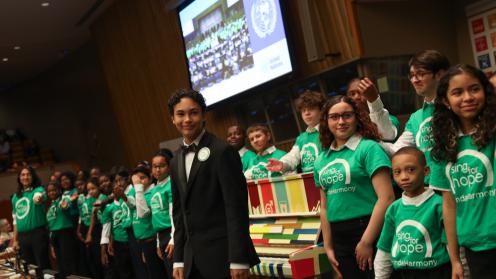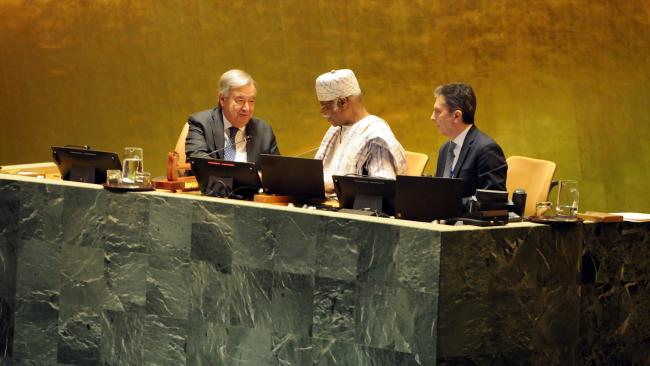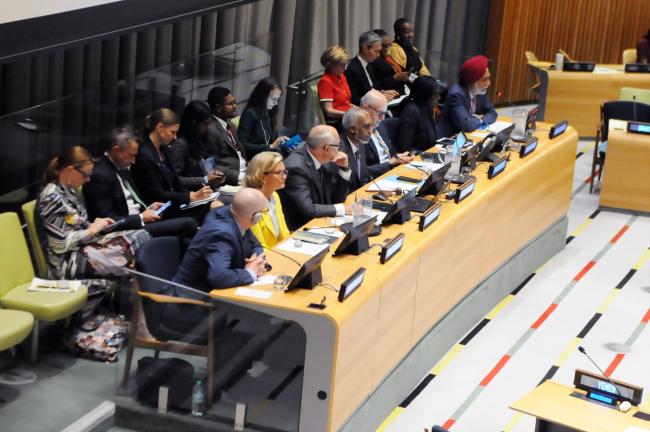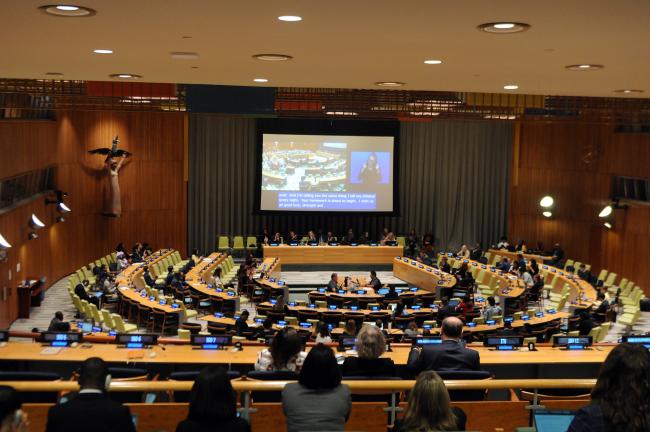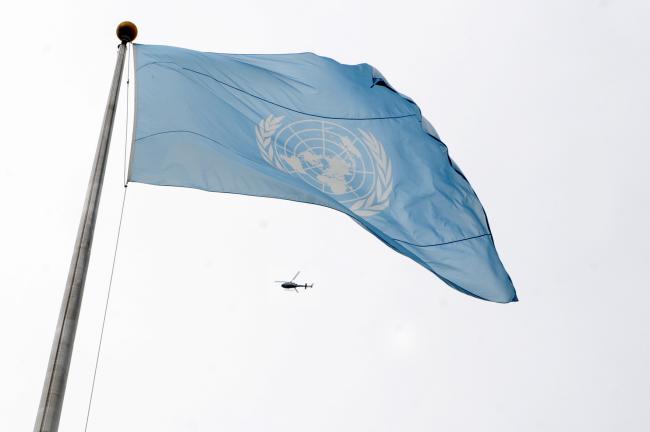Discussions on the final day of the Summit of the Future (SOTF) continued in two parallel tracks. In plenary, more than 60 Heads of State and Government and over 70 ministers and other high-level speakers offered their views on how to reform the multilateral system. The final two Interactive Dialogues also took place, focusing on the two annexes of the Pact for the Future: how to bridge the global digital divide, and enhancing the global system for current and future generations.
Want to dig deeper into today's talks? Read the full Earth Negotiations Bulletin daily report.
Most statements noted the impact of multiple serious conflicts happening around the world, with several speakers noting that global peace and security have never been under so much threat since World War II. Finland’s President, Alexander Stub, announced his country’s support for comprehensive UN Security Council reform, including: adding five new permanent seats for underrepresented regions—two each for Africa and Latin America and one for Asia; scrapping all veto powers; and withdrawing voting privileges for countries that “blatantly violate” the UN Charter.
Introducing the first Interactive Dialogue, Alar Karis, President of the Republic of Estonia, described his country’s “success story” in enhancing transparency, openness, and innovation through digital technologies. Mohamed Muizzu, President of the Republic of Maldives, called for initiatives that enable young people to participate in the digital economy, as well as that safeguard consumer rights.
In scene-setting remarks, Doreen Bogdan-Martin, Secretary-General, International Telecommunications Union (ITU), said “game changing” digital solutions could accelerate 70% of SDG targets, but warned the digital divide is threatening this opportunity. Linda Bonyo, Founder, Lawyers Hub, said that, to help close the digital divide, startups should be empowered and the issue of restrictive visa regimes should be addressed, as these prevent professionals from Africa, Latin America and Asia from sharing local expertise in global fora.
Other themes included:
- welcoming the Global Digital Compact’s emphasis on multi-stakeholder cooperation;
- the need for greater transfer of technical and technological know-how; and
- the potential of youth as “digital natives” to spearhead the digital transformation.
Andrew Holness, Prime Minister of Jamaica, opened the final dialogue on intergenerational equity, stressing the need to seize this opportunity to ensure that multilateralism is not a relic of the past, but a dynamic force for the 21st century. Luc Mercelina, Prime Minister of Sint Maarten, said the Pact for the Future puts future generations, who cannot represent themselves, at the center of decision-making.
Volker Turk, UN High-Commissioner for Human Rights, Mafalda Duarte, Executive Director of the Green Climate Fund, and Felipe Paullier, UN Assistant Secretary-General for Youth Affairs, offered expert perspectives. Issues highlighted in the subsequent discussions included:
- the need for anticipatory planning and foresight;
- that along with the Pact for the Future, the adoption of the Multidimensional Vulnerability Index and the Antigua and Barbuda Agenda for SIDS signal changes in the “culture of global sustainability” and thus hope for future generations; and
- that the direct and indirect costs of violence against children are estimated to impact around 11% of annual global GDP.
In final reflections, Kitty van der Heijden, Deputy Executive Director, UNICEF, warned the triple crisis of COVID-19, climate change and conflict, are unravelling decades of progress on children's wellbeing but hope is possible with “courage, determination, and sustained investment.”
In a brief closing session in the evening, UNGA President Philémon Yang said the SOTF and its outcome documents had answered the UN Charter’s call to better respond to current and future challenges and urged all stakeholders to never lose sight of those future generations “to whom we owe our best efforts to create a world that empowers all of humanity, leaving no one behind.” He declared the Summit closed at 8:11 pm.
To receive free coverage of global environmental events delivered to your inbox, subscribe to the ENB Update newsletter.
All ENB photos are free to use with attribution. For this event, please use: Photo by IISD/ENB - Diego Noguera
